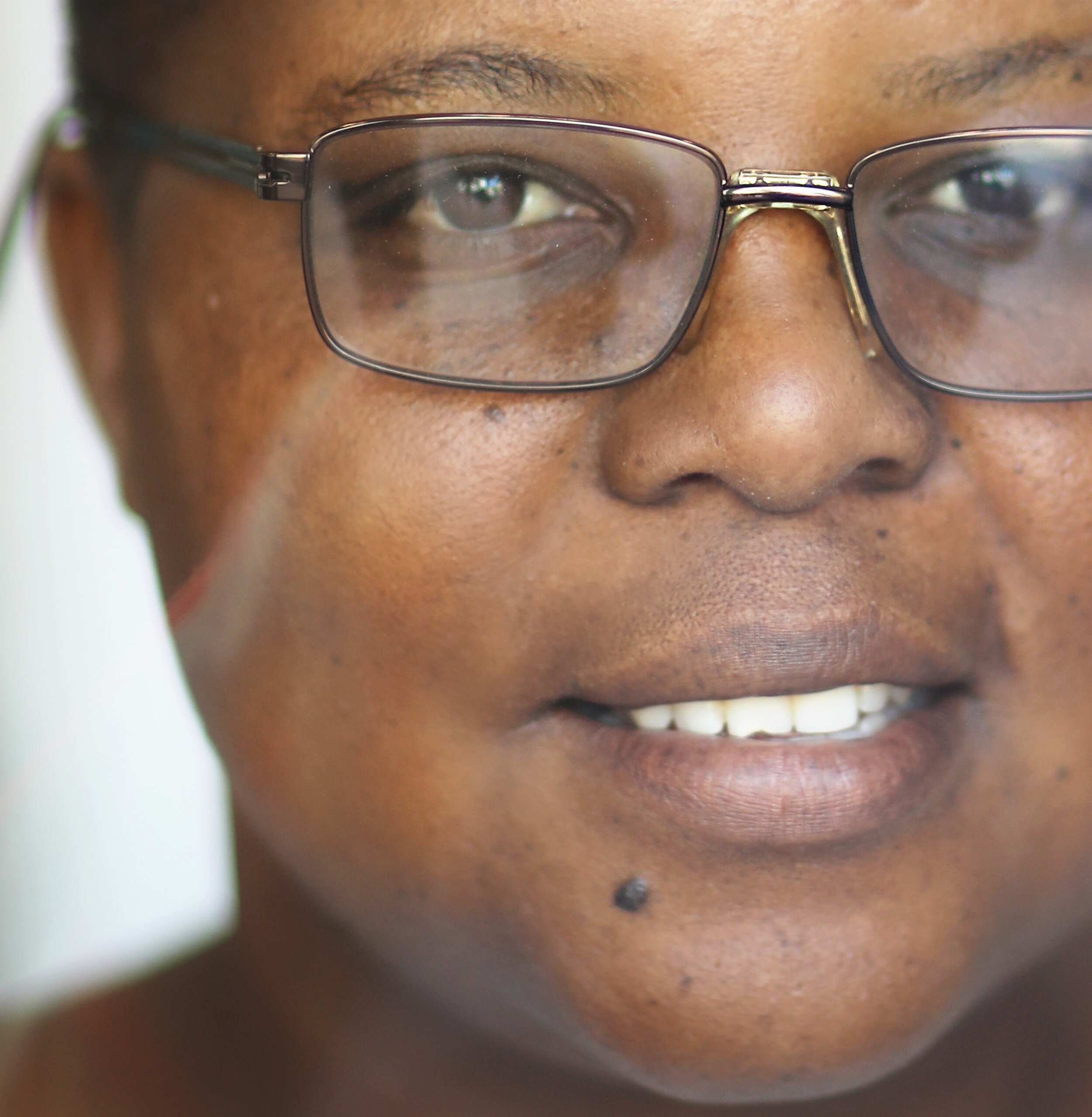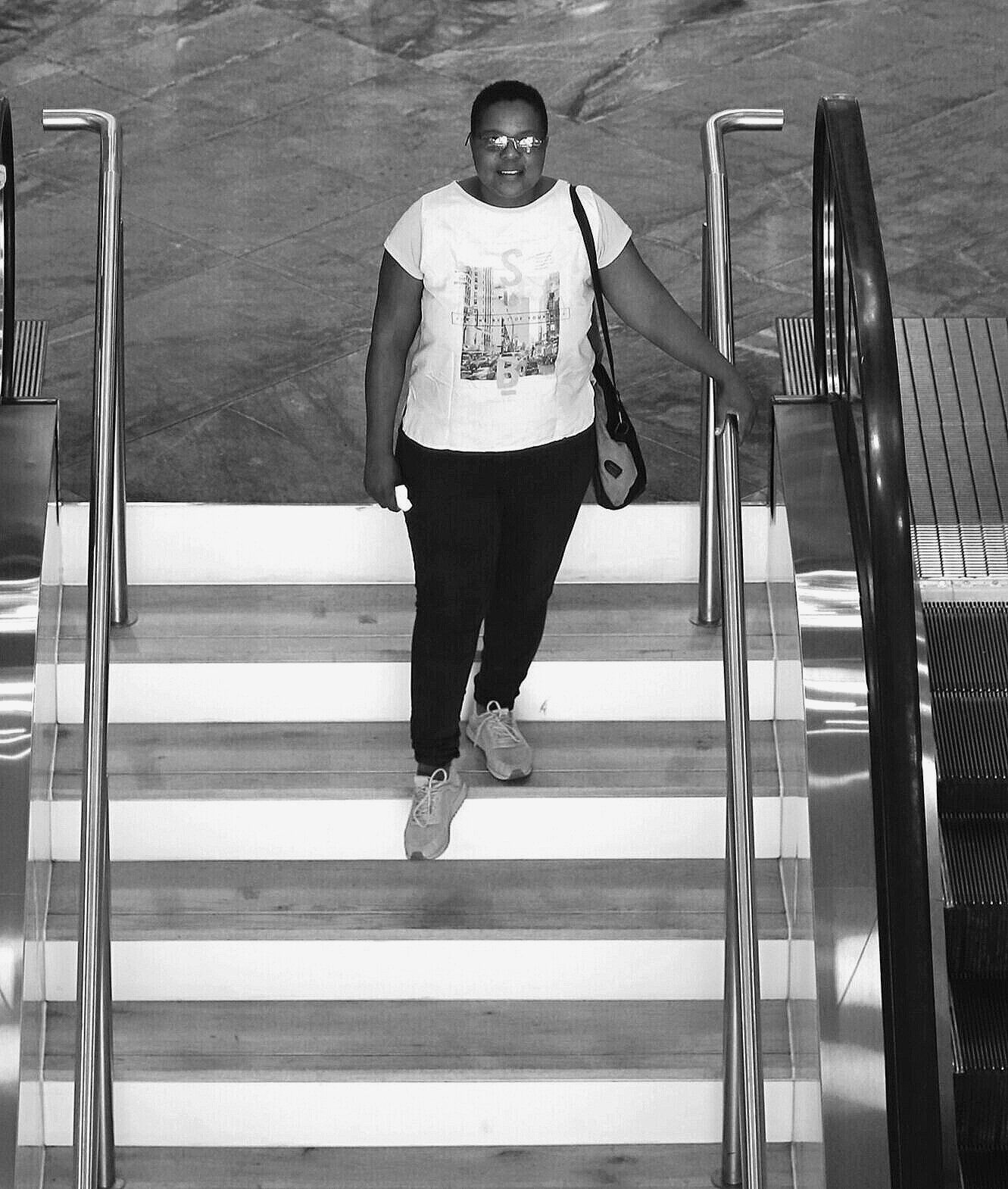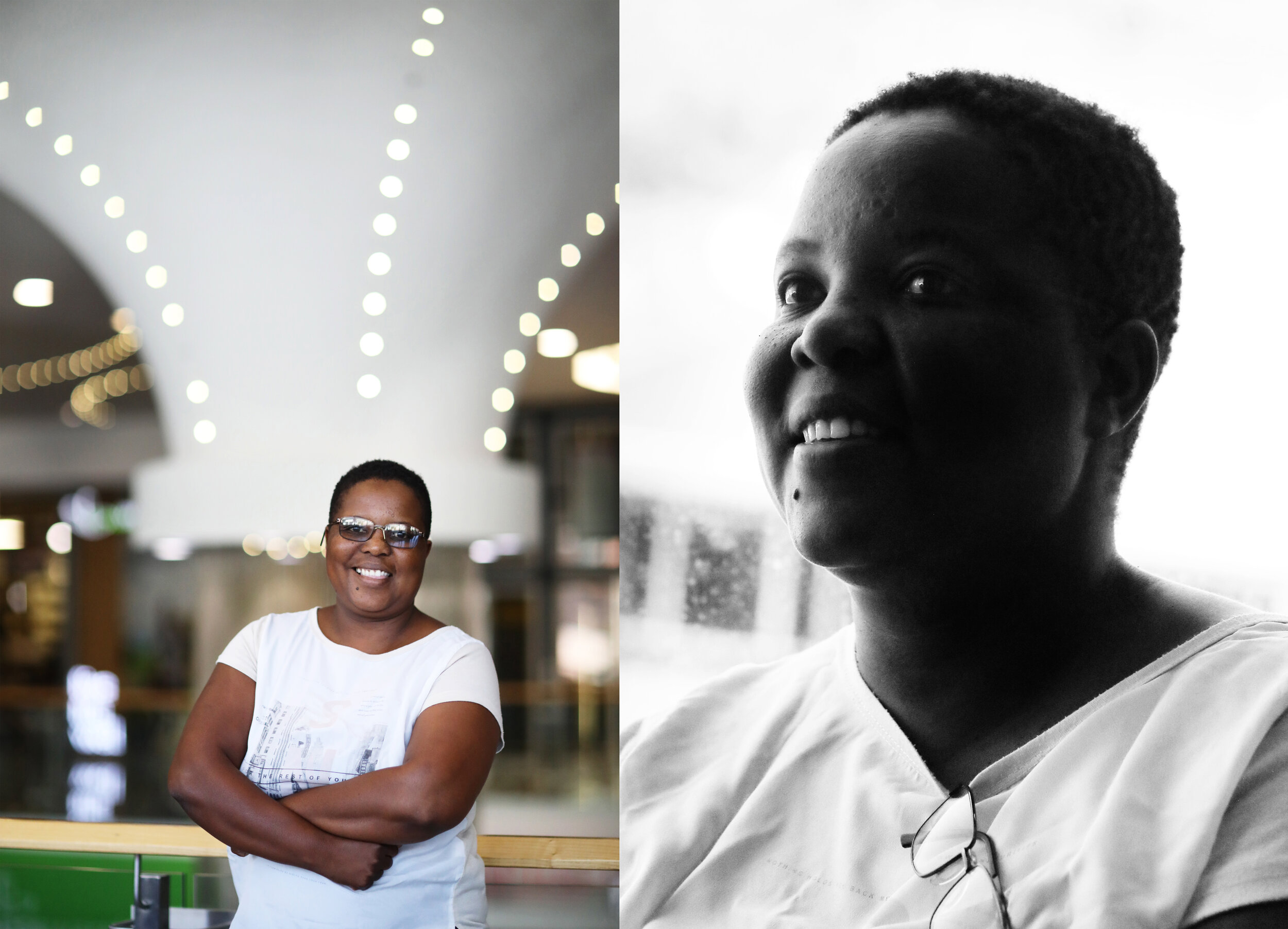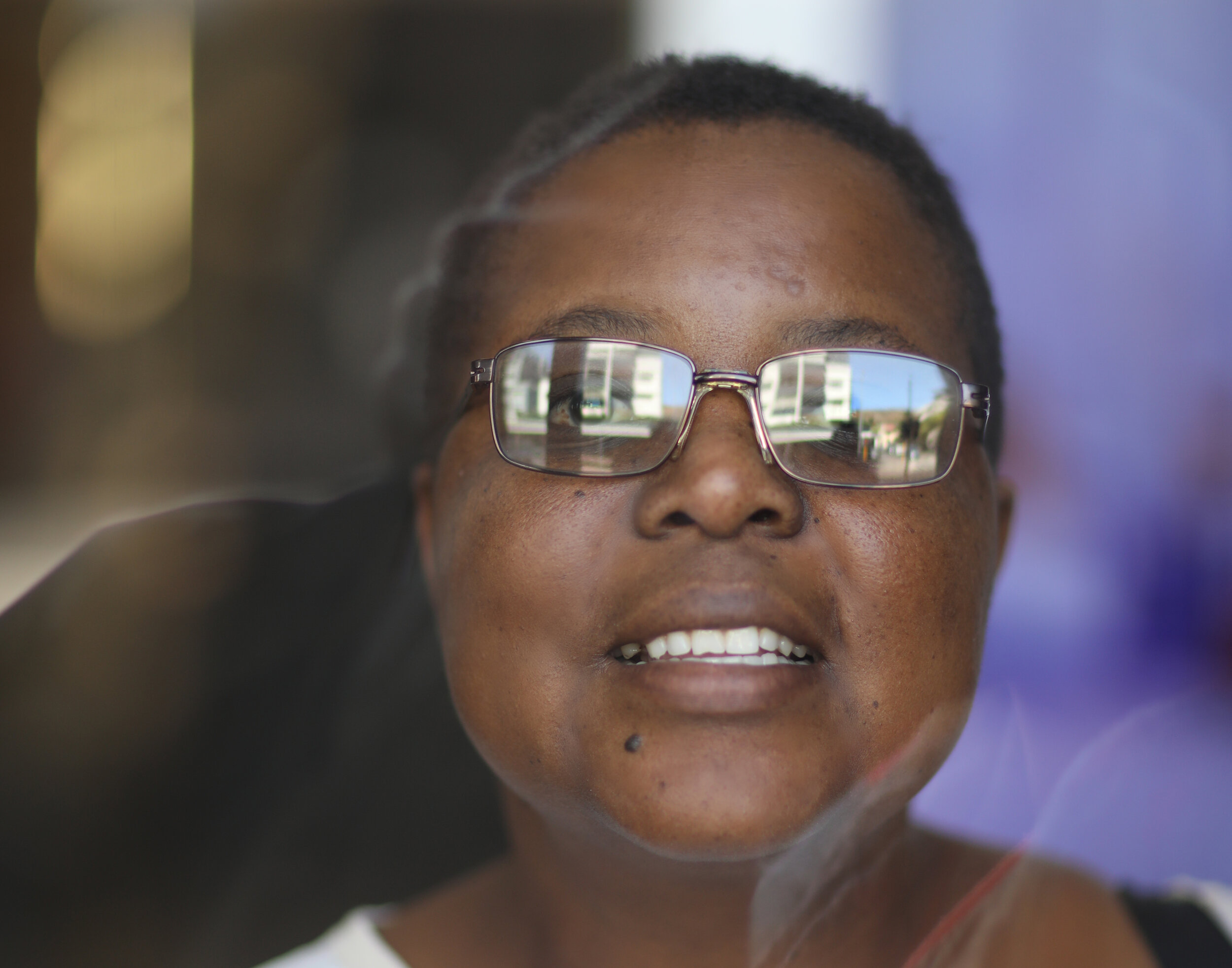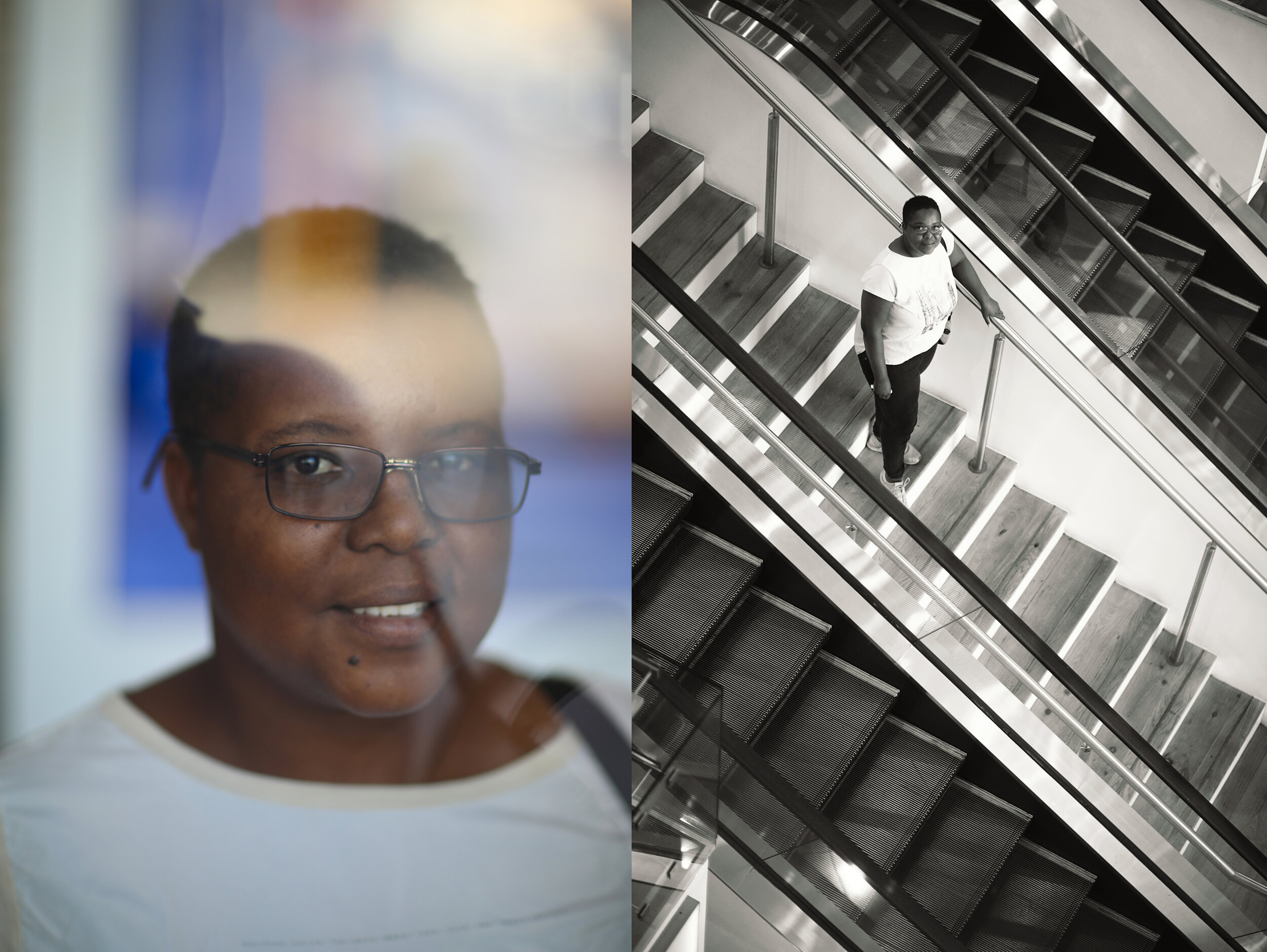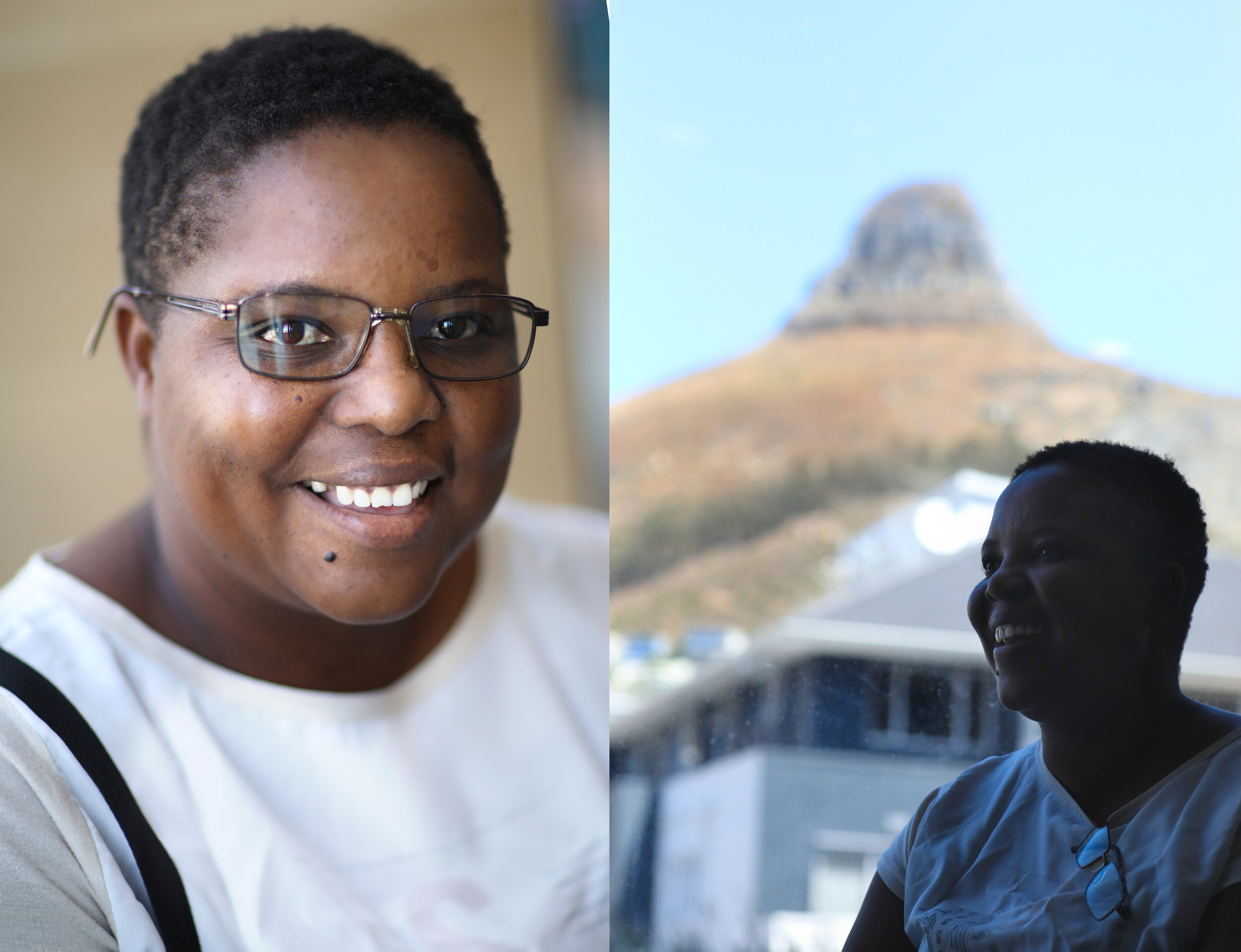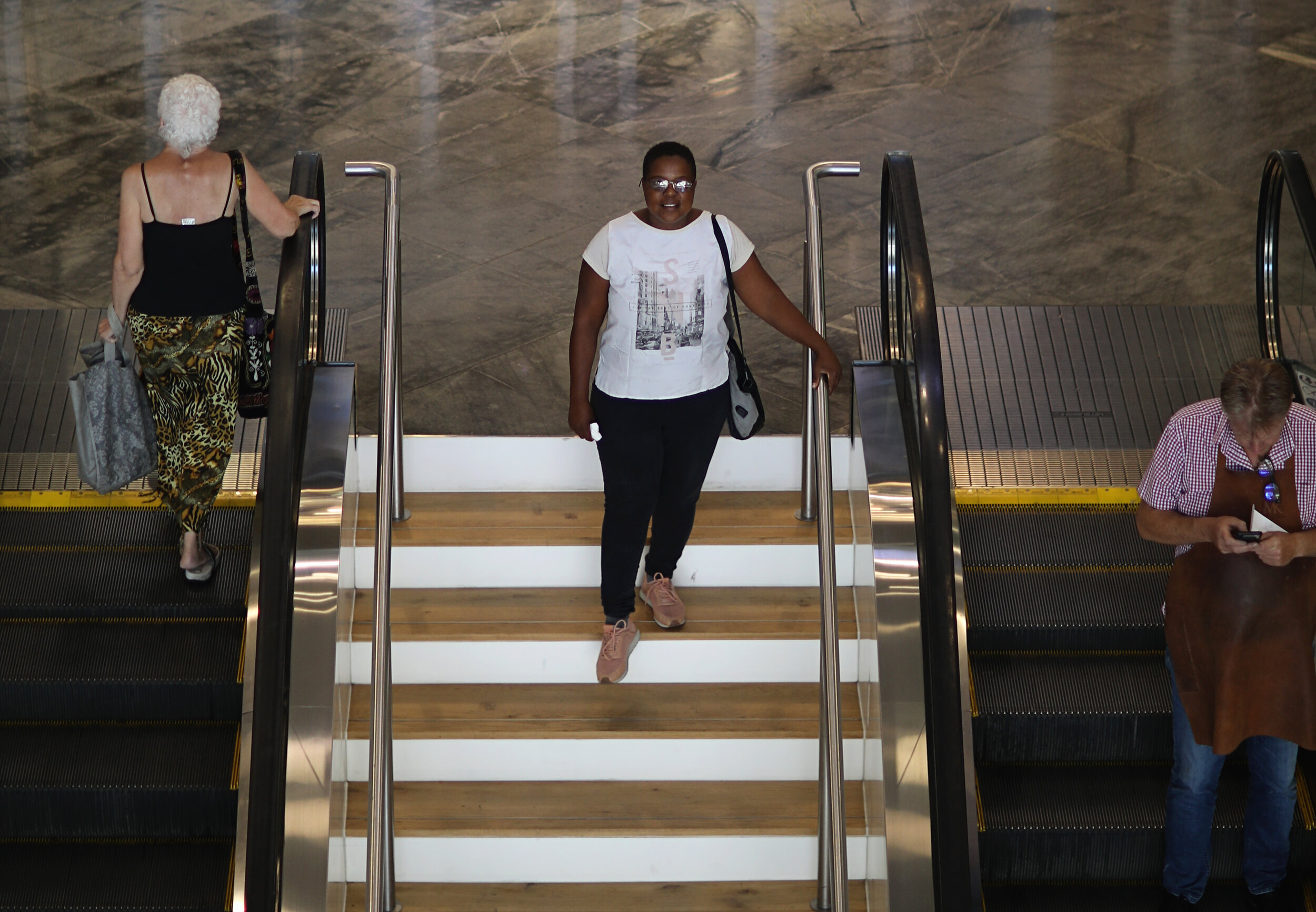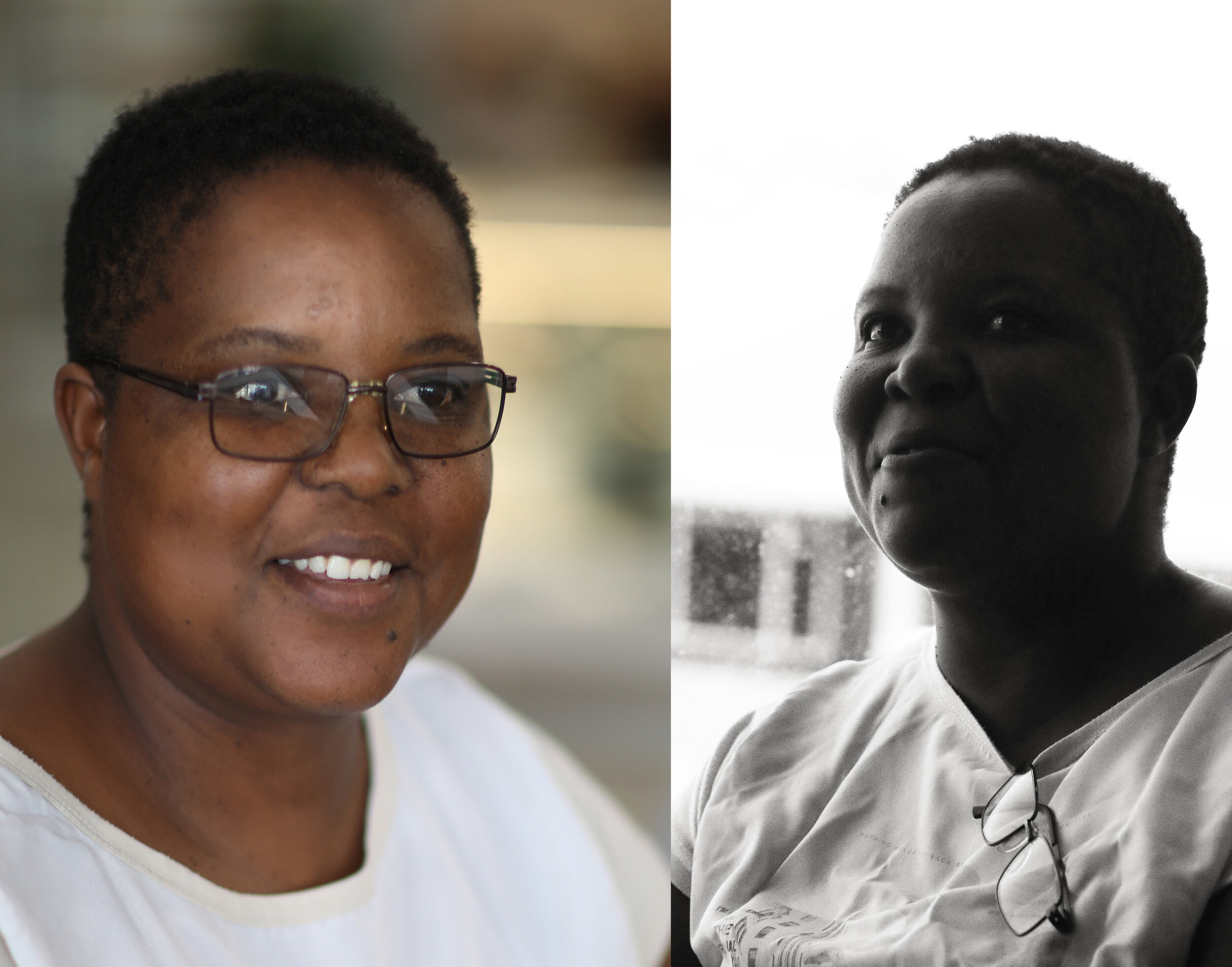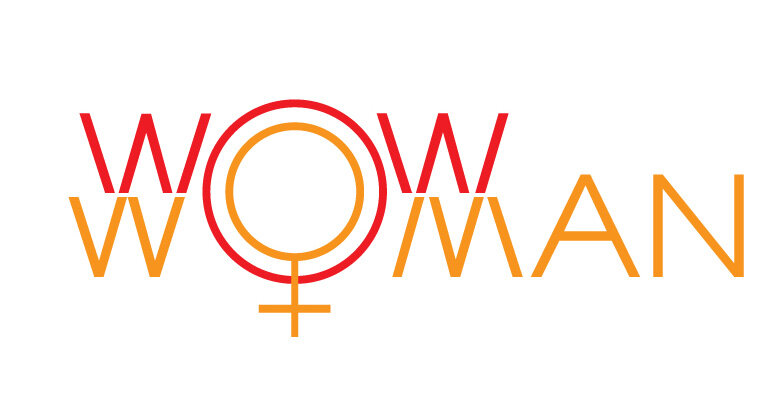Uber Driver, Tourism Entrepreneur, Teacher, Cape Town, South Africa
It is not a secret that women across the world face higher barriers to accessing paid work and transportation compared with men. According to the report by the International Finance Corporation, women also face more constraints than men on their ability to travel. These include affordability, access to vehicles, personal security concerns, and, in some countries, social norms around independent movement. This not only limits women’s income-generation opportunities but it also restricts development and social mobility by curbing their access to health, education, and other services—both for themselves and for their children.
I wanted to understand how ride hailing industry in particular addresses gender gap. I met Ms. Kujinga as my first and only female Uber driver during my time in Cape Town. In a country like South Africa, where ride sharing services are widely available and affordable, women riders have embraced the service readily. Yet it is still a rarity for women to adopt the ride sharing avenue for additional income generation. As a result, when I’m fortunate enough to get a female driver, I ask many questions, try to learn as much as I can and in general show much ardour. I’m very much drawn to sturdiness of women in this line of work, their resolve and directness. You see, only 3.8% of Uber drivers in South Africa are female. Why? For one, 79% of South African women drivers say security concerns limit the number of hours they spend on the road or prevent them from getting behind the wheel. This figure is remarkably high compared to the 26% average across all six markets studied including Mexico, UK and Egypt. Other interesting statistics from the IFC report:
Across all Uber markets, as many as 90% of female drivers said that working with Uber allowed them to purchase products or services they hadn’t been able to afford before.
Just over one in 10 women drivers say they face aggression from traditional taxi drivers, rising to 16% in South Africa.
“Driving is an example of a role traditionally executed by men”. Many women interviewed and surveyed have had to overcome social stigma and cultural biases to drive for a living. Their success highlights both the pioneering nature of these women and the substantial barriers that ride-hailing companies face as they try to enlist more women drivers.
91% of mothers driving with the Uber app are also the primary caregivers for their children.
Almost all (98%) female Uber drivers have completed at least secondary schooling, a figure consistent across all six markets studied. Additionally, more than one-third of the women have gone on to tertiary education.
Women drivers are approximately half as likely to be married as male drivers (36% versus 71%, respectively) and most women drivers in each country identify as the main earner in their household—underscoring their need for financial independence.
Learning about the drivers’ statistics has made us view Tsungi’s story and experiences from a different perspective. Additionally, this interview took place before COVID-19 transformed our reality and forced South Africa into a lockdown. Ms. Kujinga’s story has taken on a new set of challenges as she is heavily dependent on tourism and commuters for her livelihood. Please read with that caveat in mind.
1. Name.
My name is Tsungi Pamela Kujinga, a 38-year-old woman.
2. Where is your hometown?
I was born and bred in a small town called Masvingo in the southern part of Zimbabwe.
3. What is your profession/career/title/self-label/designation? What does your average day look like?
I am a qualified primary school teacher at a junior level. I am able to teach all subjects from grade three to seven. I am also a holder of a diploma in Marketing from London Chamber and Commerce Institute (LCCI).
I also have 10 years of experience in the hospitality industry where I worked as a runner, waitress, barista and in various management levels.
4. What did you study in school?
In school I studied Geography, English, Shona Language (a Bantu language of the Shona people of Zimbabwe), Integrated Sciences, Commerce, Mathematics and Building Studies.
5. What was the journey like to get where you are (in life and career-wise)? Write about some of the achievements that you are most proud of. What was the breakthrough moment for you (in your personal life and/or career?) that set you on the current path in life?
My journey in my personal life has neither been smooth sailing and nor easy. When I came to South Africa it was at the height of political violence in Zimbabwe. Back then speaking against the Mugabe’s regime would get you killed, get your family victimized or murdered. As a young person then I was active in the change movement so I would attend opposition party meetings fully knowing how dangerous it would be. I realised that things were becoming too tense in the country after I had been detained and was released without any charges, but only after being assaulted with button sticks first. I knew the next time I might not be so lucky.
I then left Zimbabwe and worked in Botswana for eight months as a general hand. Getting a permit proved to be difficult so I went back to Zimbabwe but now things were too hot. The politics and the economy took a nose dive. Staying with my parents was also a recipe for disaster. The area was a strong hold for the ruling party which I criticized, so my parents told me to leave for my own safety.
I left for South Africa where I first landed in Johannesburg. I stayed for about three months then left for Cape Town in search for refugee papers. Gauteng /Johannesburg was difficult to live in without proper documentation. Cape Town was also not an easy place to get my papers in order but it was more peaceful than Johannesburg where there was always the fear of being arrested by the police for being an illegal migrant. Getting my refugee papers set me up for a better life. I started working at a restaurant as a runner and cleaned tables, from there I started climbing the ladder, but but still applying for teaching jobs.
I always held two jobs: during the day I worked at a coffee shop from 7am to 3pm then at a big restaurant waitressing from 5pm until 1am. I worked to send money to my parents. As teachers, their salaries were now peanuts in Zimbabwe, but life went on and they had my siblings to take care of.
Hard work allowed me to hold any position in the restaurant, mostly in the front where pay was better; hard work helped me persevere.
6. How is your life different from what you pictured at 20?
At 20 I was a first-year student at a teacher's college and I thought I was going to be in my country forever although I wanted to study further after graduating as a teacher.
Since then my life has had its ups and downs. When I had my second child we got separated from my husband. During that time I stopped working and life became rather tough. I couldn't even buy myself a chocolate bar. I had a Caesarean section which took long while to heal, and impeded on my ability to work. My ex moved out and moved on.
I was left with two kids and no income. I had to lift myself although I was not physical strong. I found a waitressing job and was back at it. I was not in the right space of mind and lost so much weight (from a size 36 I dropped to a size 26). My constant worry was whether I could provide for my kids. I had relied on my husband to take care of us when I had the baby but things turned out wrongly.
7. Was there a time when life knocked you down or out and how did you get back up on your feet?
I lost my dad the same year he had a stroke. To make ends meet, when Uber came into Cape Town, I decided to become a driver. I already had a license but my car did not meet the Uber standards. I had to drive someone's car, working for a commission. I also had to find a nanny because now I was working at all hours of the day. I worked like a possessed person, sometimes 18 to 21-hour days. I hardly ate so I had to stop breastfeeding for it was no longer enough for the baby. I strove on and finally started saving money.
Additionally I started a side business selling fruit and vegetables. I would give myself two hours to switch off my Uber app and sell fresh vegetable by the gate of my apartment building.
I am blessed that my sister helped me with a top up to buy a car for myself. I finally said goodbye to working for a commission. I was now a car owner and a driver. I could finally reduce my working hours, have more time with my kids and time to rest.
After learning more about entrepreneurial ventures, I now lead private groups as a tour guide, help tourists discover Cape of Good Hope, wonderful wineries around Cape Town and even help arrange airport transfers and pick-ups. I have a seven-seater and a five-seater van depending with how many people I have to pick up. I now work with my husband, we are a good team, which in turn helps our business run smoothly.
8. Advice for other women?
My advice to other women is to always have a backup plan and always try to earn enough to look after you and the kids with or without a man in your life. Life at times is cruel; you might fall out of love and separate or he can die at any time and you will be left to shoulder all responsibilities. So always be in a position to fend for the family and be INDEPENDENT.
9. Knowing what we know now in a current political climate, can women be "all that we can be" in today's world? What is the way forward, as you see it, for "feminist values"?
In today's world women can be anything we want especially in the places where human rights are practiced. As women, let's take the opportunities we have and make a better life for tomorrow's female generation. Let's pave the way!
10. Where in the world do you feel “tallest” (i.e. where is your happy place)?
I feel my tallest and most at peace when I am with my kids. They mean the world to me, they love me with their all. They don't judge me and to them, I am a superwoman who has a solution to all their worries. Putting a smile on their faces and wiping their tears makes the hard work I do worthwhile.
11. What extra-curricular activities/hobbies are you most proud of? Why?
I have hobbies that keep me busy. I sell secondhand clothes and fresh meals at church. I have monthly meetings with women-only stokvels. (Stokvels serve as rotating credit unions or saving schemes in South Africa where members contribute fixed sums of money into a group pot). It's like a piggybank, where we pool in money and collectively save to buy groceries in bulk, or give each other money in turns to spent on buying things like cars or houses. This way we are helping each other to avoid debt, and make purchases with cash.
12. What do you want to be when you grow up? Future goals/challenges?
When am older I would love to travel more, I would love to see the world and learn about different cultures first-hand. I crave to understand how other people live in different countries and on other continents.
13. What fears are you still hoping to overcome?
My fears in life is failing to protect my kids. The world is complex so I feel like with all the evil going on in the world I might not be doing enough for them.
14. Anything you'd do differently, if you had another go at life?
If I had another go at life, I wouldn't change or do anything differently. I believe that what happened, good or bad, has been a lesson for me. And I wouldn’t have learned that lesson if nothing bad happened. I strive to be a better person every day.
15. What inspires you?
I am inspired by knowing that nothing is impossible in life if you put your mind into it. You can be anyone and anything depending with how much you want it. Knowing that I keep pushing myself towards my goals. No matter how long it takes, I feel that l will come out victorious one day.
16. What are you hopeful about?
I am hopeful that my business will prosper and grow into something bigger than what it is at the moment; one step at a time.
17. What are some ingredients to a good life?
My ingredients to a good life are health, hard work and patience.
18. What advice would you give your 14-year-old self?
My advice to my 14-year-old self is to remember that teenage-hood is just a phase. Don't rush to grow up too fast, enjoy being a kid rather than wanting to be the most popular girl in school.
19. What are you reading now? (what books do you gift most and what are your favourite reads?)
At the moment I am reading two books: a hard copy of Albino by Jack Cope and when am in the car I read on my phone a book called Bringing the Nation's Husband Home by Ye Fei Ye. It's a Chinese author and the book was translated into English.
The book I gift most is called A Time To Kill by John Grisham. My favourite reads are by Wilbur Smith, Sydney Sheldon and Barbara Taylor Bradford.
20. Who is a WOW Woman in your world who inspires you and why? Can you nominate three (or more) women you know who perfectly fit WOW WOMAN description? What would you tell them, if you had an opportunity, why you admire them?
My WOW Woman is my mom for she achieved a lot from sheer perseverance.
I also admire Helen Keller, Mother Theresa and Greta Thunberg. If I had an opportunity I would ask Helen Keller where she got the will power to achieve what she achieved. She was the first deaf-blind person to earn a Bachelor of Arts degree. I would ask Mother Theresa where her seemingly bottomless compassion to look after the sick came from. She truly devoted her life to others, prayed for everyone and served the world selflessly. Greta Thunberg is only a teenager but she is making grey old people listen to her wherever she goes. Where did she get the guts to stand on world podiums addressing key issues that are affecting the future of the earth?
I admire these women because they stand firm and tall. I also envy them for making a difference in many people's lives and not just their own.
21. Where can others find you/your work (links to websites, blogs, etc.)?
For bookings on tours around Cape Town, airport transfers I can be contacted by email: tkujinga@gmail.com or +27 717 626561.

